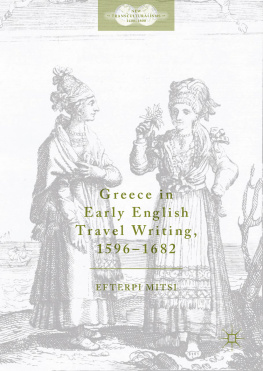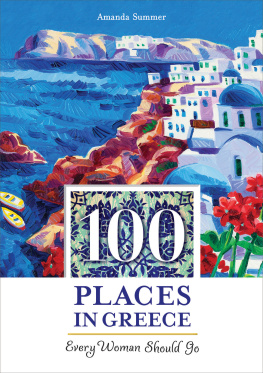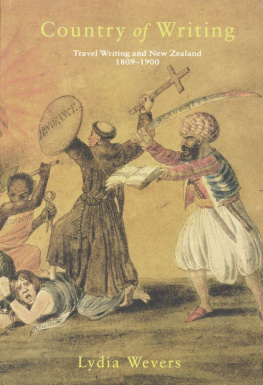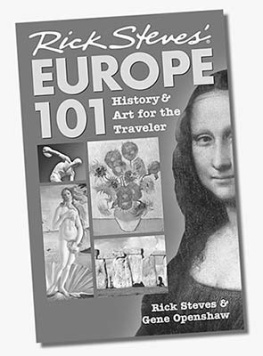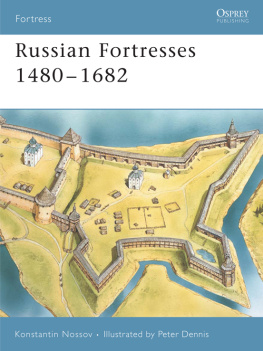1. Introduction
Neither am I so fond of antiquitye to court it in a deformed or mishapen stone; but where you shall meete beauteye with antiquitye together in a statue, I shall not stand vpon any cost your judgement shall vallew it att.
The Duke of Buckinghams 1626 letter to Sir Thomas Roe , the English ambassador to the Porte, mirrors most seventeenth-century travelers perception of Greece. Buckingham expresses his desire to create a collection of ancient statuary at any cost provided that the statues sent to England combine beauty with antiquity. Similarly, many of the remains of the ancient world did appear as pieces of deformed stone to early travelers, who, in their turn, presented a distorted or fragmented image of the Greek lands they visited.
It was only in the final decades of the sixteenth century that Britons began writing and publishing accounts of their travels to Ottoman or Venetian-ruled Greece . Their journeys resulted from a new economic and political balance between Europe and the Ottoman Empire; the naval battle of Lepanto (1571) broke the spell of Ottoman supremacy
The first English and Scottish travelers, who sailed through the Greek islands on their way to Constantinople and the Near East or even ventured to the mainland, included merchants , sailors, adventurers, clergymen, and even the few professional or leisure travelers, such as Fynes Moryson, William Lithgow, and Thomas Coryat . In the beginning of the seventeenth century, Lithgow, Coryat, and especially George Sandys described the famous sites and ruins of antiquity , despite their difficulty in correctly identifying and interpreting them. Most accounts show that the Eastern Mediterranean , particularly the Aegean, a sea famous for its strong winds and restless motion, holds a symbolic meaning for travelers as a location of myth and origins.
Unlike other antique lands, Greece had become less accessible to Westerners after the Ottoman conquest of the Byzantine Empire and thus a significant part of the ancient world remained remote and unknown for centuries. Most parts of Greece belonged to the vast Ottoman Empire, which caused both fear and fascination to Europeans. Situated at the threshold between past and present, East and West, and become allegorical signs in the historical and providential drama.
Greece in Early English Travel Writing , 1596 1682 , examines the accounts, diaries, and letters of Britons who traveled to Greece during the seventeenth century, tracing the knowledge English and Scottish travelers provided about Greece at a time when both the study of ancient texts and the interest in the Ottoman Empire were prevalent in England. This is also the period in which England transformed from a proto-colonial power, whose imperial ambitions as documented in Richard Hakluyts Principal Navigations did not match its dominions, to an emergent player in global politics , with outposts in North America and the Caribbean.
The book begins in the final decade of the sixteenth century, in 1596, the date of Morysons Greek voyage, and it explores the first encounters between Britons and the Greek people, who lived under Ottoman or Venetian rule in the same area known since antiquity. Its focus is on the first decades of the century and it ends in the 1670s, when Greece became the goal of the English travelers journey, as visitors were increasingly interested in its antiquities, topography, and people. By 1682, when Whelers travelogue on Greece was published, perceptions about the country and its monuments had changed. This was the time in which diplomats and ecclesiastics in Asia Minor studied the Greek religion and Christian antiquities, a project concurrent with the pursuit of the remnants of ancient Greek culture.
Although few travelers from England visited Greece in the mid-century, a renewed interest in the region and its antiquities developed after the Restoration . In the 1670s, the tension between the ideal and the real was counterbalanced by the excitement of the rediscovery of the material presence of antiquity. Francis Vernons letter to the Royal Society (January 10, 1675/1676) describing the antiquities of Greece stresses the importance of the discovery of Athens: Next to Rome I judge it most worthy to be seen for antiquities of any I have yet been at. This town alone deserves a whole Book to discourse of it well, which now I have neither time nor room to do. Unfortunately, Vernon was murdered in Persia before writing his book; yet, Wheler, visiting Greece with the antiquarian Jacob Spon in the same year, published A Journey into Greece in 1682, a travelogue which became instrumental in conveying the reality of Greece to English readers.
Whelers travelogue foregrounds another affinity between Britain and Greece in the second half of the seventeenth century, religion. Protestant travelers searched for the relics of the first Christian churches, interested not only in the ruins but also in a possible alliance with the Greek Church. Even earlier, Sandys called Cyril Lucaris , the patriarch of Alexandria and later the Orthodox patriarch in Constantinople, a man of approved virtue and learning, a friend to the reformed religion, and opposing the Contrary ; his efforts, recorded in the Negotiations in his Embassy to the Ottoman Porte, 1621 1628, published in 1740, included the gathering of both manuscripts and sculptures, the latter meant to please the art collector Thomas Howard, Earl of Arundel , as well as the Duke of Buckingham .
Although most seventeenth-century travelers copied inscriptions and measured monuments instead of appropriating them, what is striking in travel accounts of Greece is the relation of space to notions of history and historical progress. Even when travelers display a limited or distorted vision of the place visited, often not seeing sights but instead documenting their exploits or troubles, they do not simply offer their view of the cultural other and themselves (as many studies of early modern travel underline) but also unique insights into the early modern Mediterranean world. Thus, the emphasis of this study is not just on the rhetorical strategies adopted by travelers, moving from facts and places to autobiographical self-invention or on the use of stereotypes and their ideological implications; by examining observations on the characteristics, practices, and religious beliefs of the Greek people, this book also attempts to reveal the cultural interaction taking place during the Greek voyage. This interaction is enhanced by the parallel study of the few traces of Greeks in Britain in the seventeenth century, such as the pamphlet of Christopher Angell , a Grecian who tasted of many stripes and torments inflicted by the Turkes for the faith which he had in Christ Jesus (Christophoros Angelos) published in Oxford , 1617, aiming at sensitizing Englishmen to the oppression of Greeks by the Ottoman Turks. The emphasis on the tyranny of the Turks in Angelos pamphlet is linked with the concerns about tyrannical rule and its detrimental effects on nations voiced by Sandys and other travelers in the Ottoman Empire in the early seventeenth century.
Travel narratives , journals, and letters reveal the complexity and fluidity of the Mediterranean world in this period and prove that the presence of Britons in Greece (as well as of Greeks in England) aroused interest not only in the surviving testament of Hellenic antiquity but also in the contemporary geopolitical role of Greece. In the late sixteenth and seventeenth centuries, not only were the Greek islands important trade posts but also the Mediterranean itself embodied the idea of borderlands, in which individuals from different places and religions interacted with one another, blurring, and contesting boundaries.

